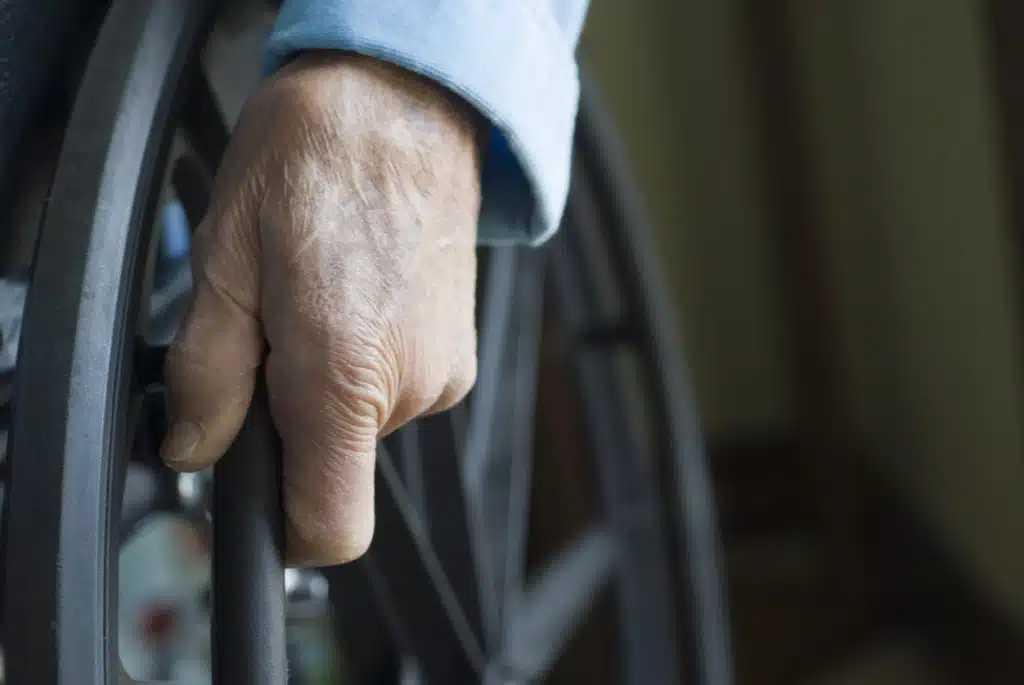
The Social Security Disability (SSD) system was created to provide the income you need if you are disabled and cannot work. Unfortunately, more than half of all applications for SSD benefits are initially denied.
Many claims are denied simply due to the complexity of the system; claimants don’t understand how the system works or what they need to do to make a successful claim.
At Marasco & Nesselbush, our disability attorneys have been helping people qualify for disability benefits since our firm opened its doors 1999. The application process can be confusing and alienating. We will skillfully evaluate your disability claim to determine what’s missing from your application, and we work with both your doctors and our own medical experts to develop the medical evidence needed to win your case.
Our Rhode Island personal injury lawyers are ready to help you obtain the Social Security Disability benefits you need, deserve, and have paid for while you worked. Contact us now for more information and a free claim review.
Common Mistakes to Avoid in the Social Security Disability Application Process
1. Applying to the wrong program.
There are two SSD benefits programs you may be eligible for: Supplemental Security Income (SSI) and Social Security Disability Insurance (SSDI). SSI is a means-tested program for people with limited incomes and resources. On the other hand, qualification for SSDI is based on the claimant’s work history, and has no means test. The benefits available through SSDI may be much greater than those available through SSI, so you should explore all possible ways to qualify including qualification based on a spouse or parent’s work record. Some claimants may be entitled to benefits under both SSDI and SSI. Your attorney can review your eligibility and help you to apply for the benefits programs that will maximize your monthly income.
2. Not submitting appropriate medical evidence.
The SSA has a very narrow and strict definition of “disabled.” You must show you meet the criteria in order to qualify for benefits. You must provide evidence of your qualifying medical condition and show you have the required symptoms which preclude full-time employment. The SSA has a “Blue Book” with a list of qualifying health issues along with required associated symptoms.
3. Not telling your doctor about all your symptoms and problems.
Make sure your doctor knows and documents the full extent of all your physical and mental problems so the SSA can see just how severely disabled you are. Now is not the time to put on a brave face or hide things from your doctor.
4. Waiting to apply for benefits.
When you qualify for SSI, you may recover back benefits dating to the first month after you filed an application. If you wait to file your application, you will not receive SSI income for the time you were disabled before you requested benefits to the SSA. The rules are different for SSDI. These benefits are paid from the sixth full month after your disability started. However, you can receive benefits for the year before your application date. If you wait for longer than 12 months from the time your disability began, you may not receive the full amount of back benefits.
5. Not taking medication or getting recommended treatment.
Failure to follow doctor’s orders may result in your benefits claim being denied. You must take medication and undergo appropriate treatments if you wish to qualify for SSD benefits or maintain continued eligibility for SSI or SSDI income.
6. Failing to appeal a benefits denial in time.
If your benefits claim is denied, there are four different stages of appeal that may make it possible for you to get the income you deserve. You have a limited amount of time to appeal a denial, and you must act within this time limit to preserve your right to appeal. If you do not appeal, you will lose your chance to recover benefits without starting an entirely new application.
7. Not getting legal help.
The lawyers at Marasco & Nesselbush are ready to provide valuable assistance if you are disabled and seeking SSD benefits. Our attorneys are prepared to gather the medical evidence you need and help you to submit a complete application so you will have the very best chance of getting your claim approved. We can also appeal a benefits denial to protect your rights.
We have a long track record of success by providing compassionate and effective advocacy during the SSD application and appeals process. Our lawyers won’t give up until you receive benefits, or until we have exhausted all possible theories of appeal.
Contact us now for a free claim review and more information about how we can help.